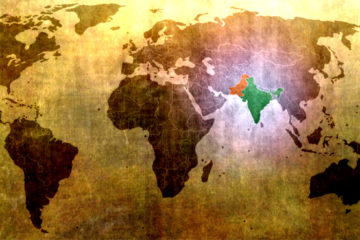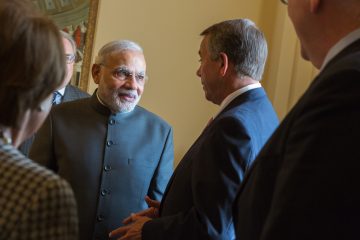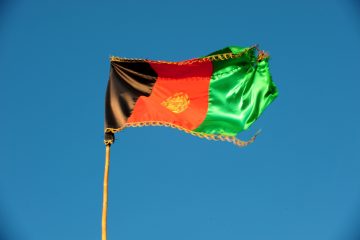
Prolonging Conflict: Global Powers’ Involvement in the India-Pakistan Rivalry
The India-Pakistan conflict is one of the most enduring rivalries of the post-World War era. The two nuclear states have fought four wars, and smaller-scale skirmishes are common occurrences. Since the nuclearization of the two countries in 1998, the nuclear stalemate has been one of the most important facet of this ongoing rivalry. Apart from Kashmir, over which three wars have been fought, constant cross-border terrorist attacks in India have severely limited and disrupted initiatives to defuse the situation. Recently, tensions have flared up because of the decision by the Indian government to abrogate Article 370 of the constitution which gave the state of Jammu and Kashmir special status within the Indian republic. This move has infuriated Pakistan, vowing to …

Arming without Aiming? India’s Quest for Material Power and International Influence
In terms of material military power, India does not lag far behind the traditional materially powerful states. The country ranks among the top in terms of the size of and investments in its army, air force, and navy. Furthermore, in 1998, India revealed to the world that it possessed nuclear weapons. Yet, while India has sufficient material power to be categorized as a powerful state, the country does not always think and act like a materially powerful state. For India, more material power has not been necessarily enough to ensure greater international influence. Thus far, India can be accused of ‘arming without aiming’ in its quest for greater international influence. India’s Material Powers India’s raw military power is impressive. The …

Why has “ISIS” so far Failed in India?
The so-called Islamic State of Iraq and Syria (ISIS)/Daesh is a relatively new terror organisation, but one with large and gruesome ambitions. Their activity in the Middle East, European capitals and American suburbs gain most of the headlines, but areas of Asia and Africa are hardly immune. On paper, India looks vulnerable. It is part of the imagined Khorasan territory of the ancient caliphate that ISIS seeks to recreate. It has the third largest Muslim population in the world, the majority of them Sunni. Some fear this population is a fertile recruitment ground for radicalization. Though ISIS vows to wipe out the Shia Muslim and Hindu populations in the country, to date no attack has taken place within India. The …

New Challenges – Is the Taliban in Transition?
On 21st May, an American airstrike killed Taliban leader Mullah Akhtar Mansour in the Pakistani province of Baluchistan. This operation, which involved multiple drones, comes as a relief to many, as Mansour had been actively planning and carrying out attacks across Afghanistan. According to the US Secretary of State John Kerry, Mansour ‘posed a continuing imminent threat to US personnel in Afghanistan, Afghan civilians, Afghan security forces, and members of the US and the NATO coalition.’ The killing of the Taliban leader, however, is likely to lead to unwelcome consequences, and will hamper peace talks between the insurgents and the government. The issue of peace talks has always been unpopular among the Taliban’s most senior leadership. In the wake of Mansour’s …










